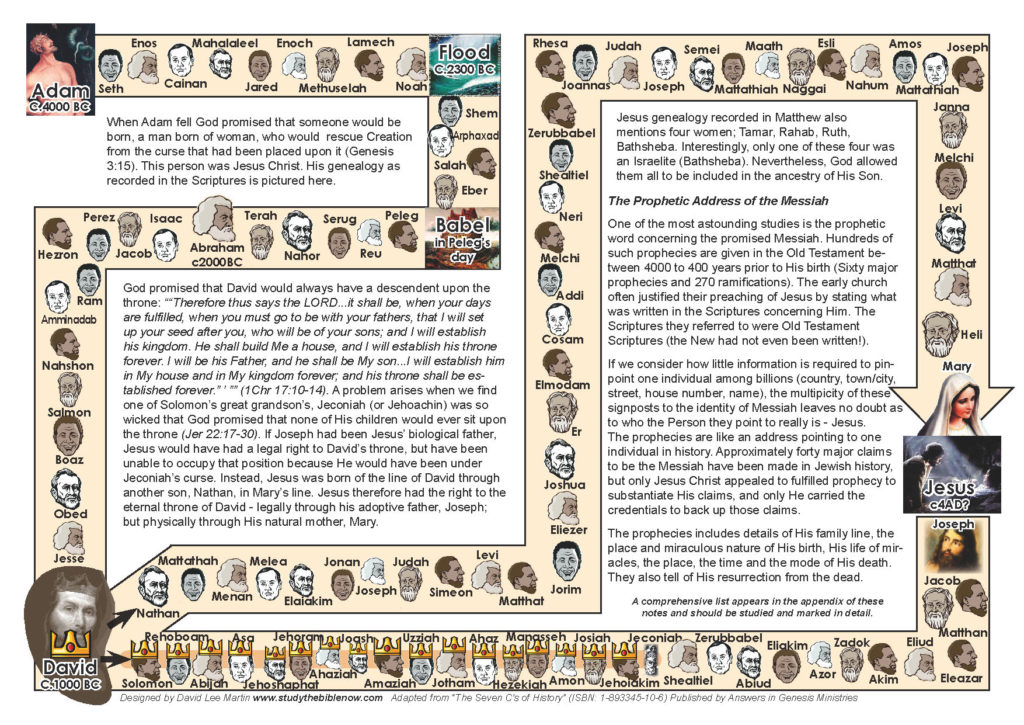When Adam fell God promised that someone would be born, a man born of woman, who would rescue Creation from the curse that had been placed upon it (Genesis 3:15). This person was Jesus Christ. His genealogy as recorded in the Scriptures is pictured here.

God promised that David would always have a descendent upon the throne:
“Therefore thus says the LORD…it shall be, when your days are fulfilled, when you must go to be with your fathers, that I will set up your seed after you, who will be of your sons; and I will establish his kingdom. He shall build Me a house, and I will establish his throne forever. I will be his Father, and he shall be My son…I will establish him in My house and in My kingdom forever; and his throne shall be established forever.”
1Chronicles 17:10-14
A problem arises when we find one of Solomon’s great grandson’s, Jeconiah (or Jehoachin) was so wicked that God promised that none of His children would ever sit upon the throne (Jer 22:17-30).
If Joseph had been Jesus’ biological father, Jesus would have had a legal right to David’s throne, but have been unable to occupy that position because He would have been under Jeconiah’s curse. Instead, Jesus was born of the line of David through another son, Nathan, in Mary’s line. Jesus therefore had the right to the eternal throne of David – legally through his adoptive father, Joseph; but physically through His natural mother, Mary.
Jesus genealogy recorded in Matthew also mentions four women; Tamar, Rahab, Ruth, Bathsheba. Interestingly, only one of these four was an Israelite (Bathsheba). Nevertheless, God allowed them all to be included in the ancestry of His Son.
The Prophetic Address of the Messiah
One of the most astounding studies is the prophetic word concerning the promised Messiah. Hundreds of such prophecies are given in the Old Testament between 4000 to 400 years prior to His birth (Sixty major prophecies and 270 ramifications).
The early church often justified their preaching of Jesus by stating what was written in the Scriptures concerning Him. The Scriptures they referred to were Old Testament Scriptures (the New had not even been written!).
If we consider how little information is required to pinpoint one individual among billions (country, town/city, street, house number, name), the multipicity of these signposts to the identity of Messiah leaves no doubt as to who the Person they point to really is – Jesus.
The prophecies are like an address pointing to one individual in history. Approximately forty major claims to be the Messiah have been made in Jewish history, but only Jesus Christ appealed to fulfilled prophecy to substantiate His claims, and only He carried the credentials to back up those claims.
The prophecies includes details of His family line, the place and miraculous nature of His birth, His life of miracles, the place, the time and the mode of His death. They also tell of His resurrection from the dead.
